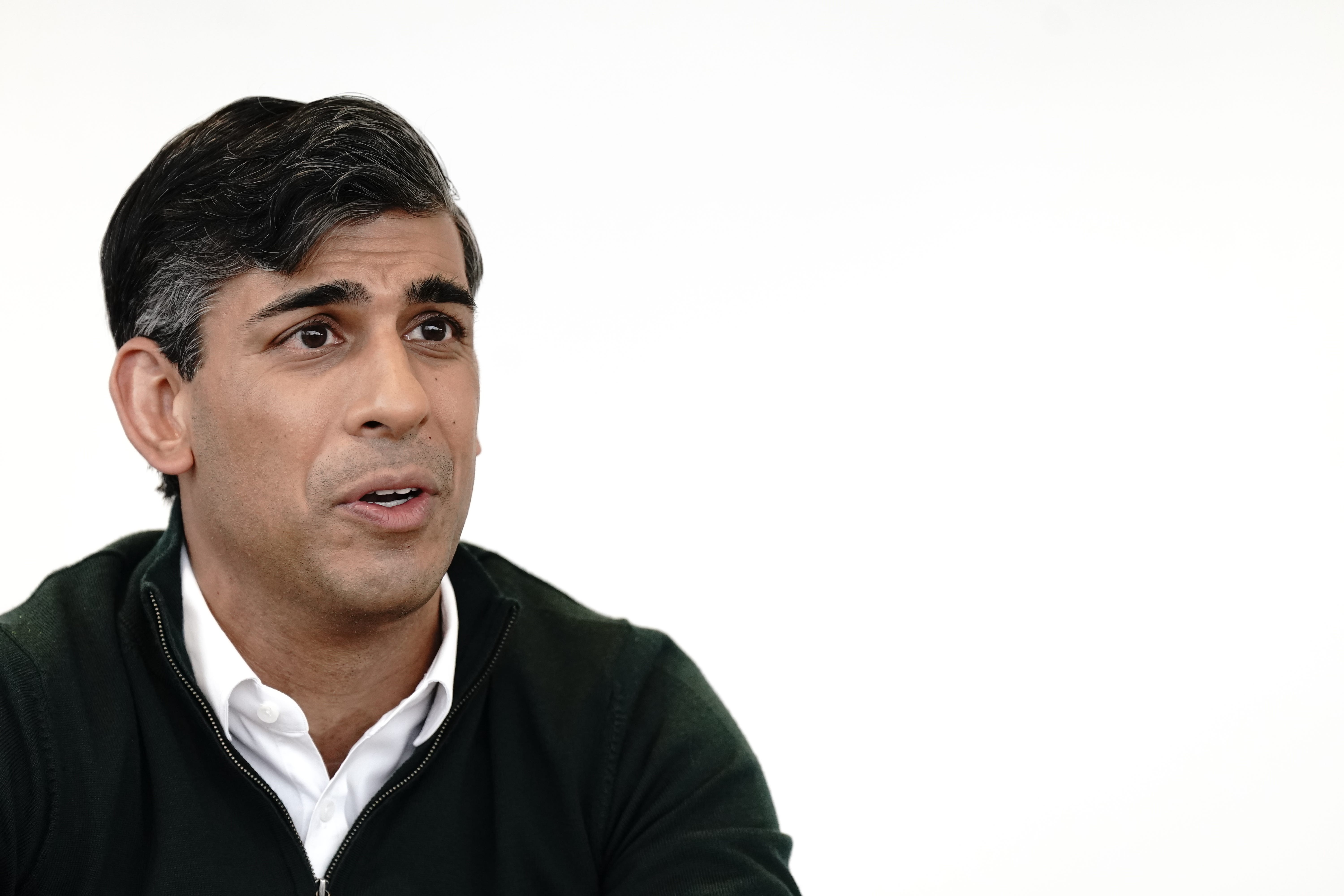Statistics watchdog probed official’s claim that economy is going ‘gangbusters’
Sir Robert Chote, chairman of the UK Statistics Authority, looked into the comments later quoted by Rishi Sunak in May.

Your support helps us to tell the story
From reproductive rights to climate change to Big Tech, The Independent is on the ground when the story is developing. Whether it's investigating the financials of Elon Musk's pro-Trump PAC or producing our latest documentary, 'The A Word', which shines a light on the American women fighting for reproductive rights, we know how important it is to parse out the facts from the messaging.
At such a critical moment in US history, we need reporters on the ground. Your donation allows us to keep sending journalists to speak to both sides of the story.
The Independent is trusted by Americans across the entire political spectrum. And unlike many other quality news outlets, we choose not to lock Americans out of our reporting and analysis with paywalls. We believe quality journalism should be available to everyone, paid for by those who can afford it.
Your support makes all the difference.The UK’s statistics watchdog investigated an official’s claim in May that the economy was “going gangbusters”, which was later repeated by Rishi Sunak.
Sir Robert Chote, chairman of the UK Statistics Authority (UKSA), probed the comments made by Grant Fitzner, chief economist at the Office for National Statistics.
Mr Fitzner told journalists in May: “To paraphrase former Australian prime minister Paul Keating, you could say the economy is going gangbusters.”
The ONS said on Thursday that it immediately clarified the comment at the time as a “passing reference” to the Australian PM’s remarks.
In a June 6 statement, a spokesperson said: “It was certainly not intended as a comment about the overall state of the economy and when the comment was made it was immediately clarified to those present that this was not a word that the ONS would use to describe the first quarter’s growth.
“We also put the comment in context for journalists who followed up afterwards.”
The clarifications from the ONS came before Mr Sunak used the phrase in the BBC interview later in May, when he was quoting Mr Fitzner.
Mr Sunak said in an interview with BBC Radio 4: “The facts are the facts. You had, I think, the person from the Office for National Statistics talking about the economic growth that the country produced in the first quarter of the year.
“He said what he said about that and I think he used the term ‘gangbusters’, so I will leave it at that.”
A spokesperson for the UKSA clarified on June 6 that the investigation had looked into the ONS briefing itself, not the use of the phrase “gangbusters” by others.
The comments came after ONS figures showed the economy had emerged from recession after official figures revealed growth in the first three months of 2024.
The ONS estimated that gross domestic product (GDP) grew by 0.6% between January and March, meaning the economy recovered from a technical recession recorded in the final half of 2023.
Sir Robert previously ran the Office for Budget Responsibility, the Treasury’s independent forecaster.
It comes amid growing concerns over how politicians frame economic data during the General Election campaign.
On Wednesday, Labour said Mr Sunak was lying when he said in ITV’s televised debate with Sir Keir Starmer on Tuesday that the party would put up taxes by £2,000 per household, and when he said the figure was based on calculations from the civil service.
It emerged the Treasury’s permanent secretary James Bowler said ministers had been told not to suggest civil servants produced the figures.
Sir Robert also opened an investigation into the £2,000 per household claim on Wednesday.
And before the debate, Sir Robert wrote to the main political parties to warn them about “ensuring the appropriate and transparent use of statistics”.
Sir Robert said: “The work of the UK Statistics Authority is underpinned by the conviction that official statistics should serve the public good.
“This means that when statistics and quantitative claims are used in public debate, they should enhance understanding of the topics being debated and not be used in a way that has the potential to mislead.”